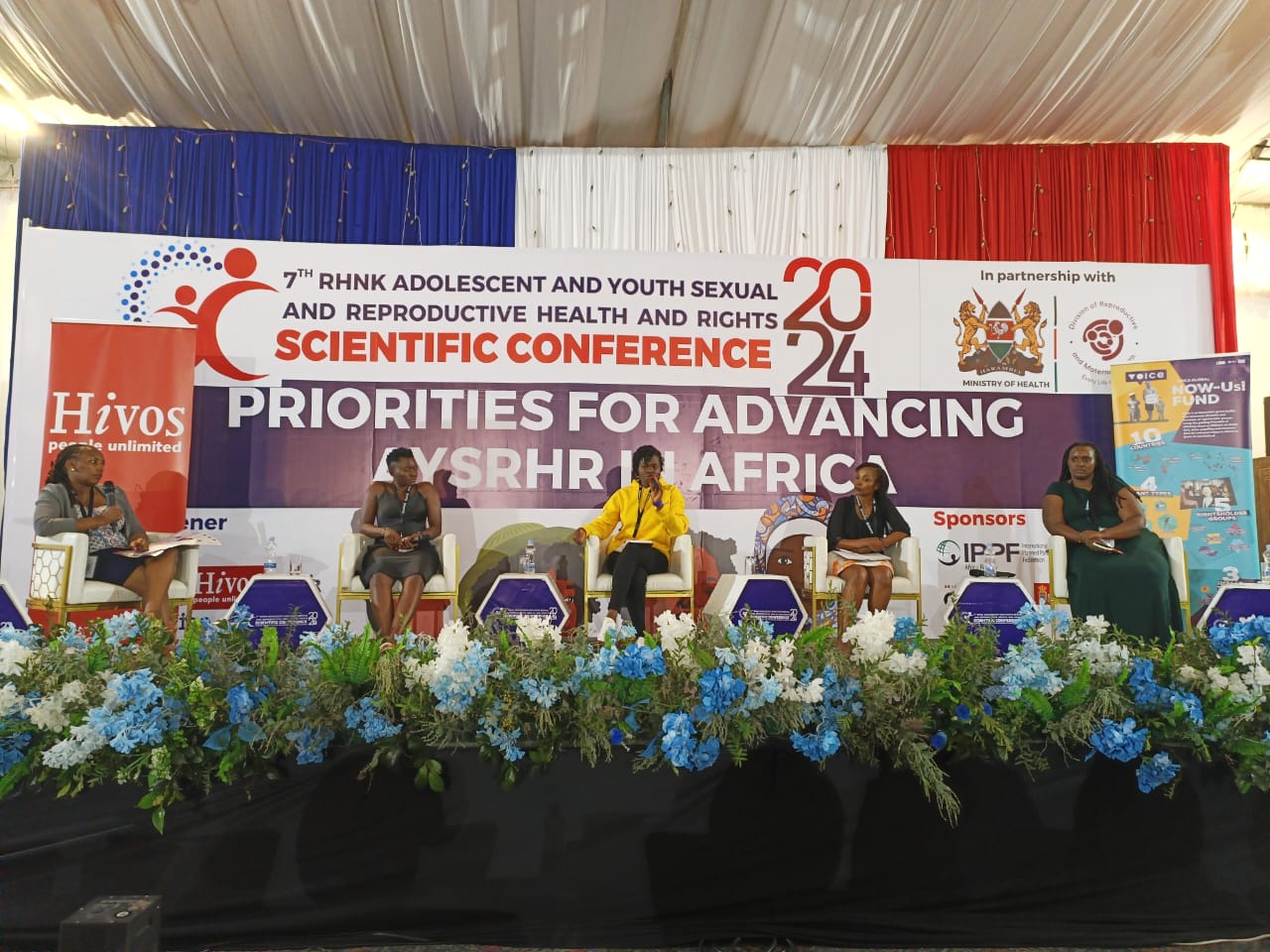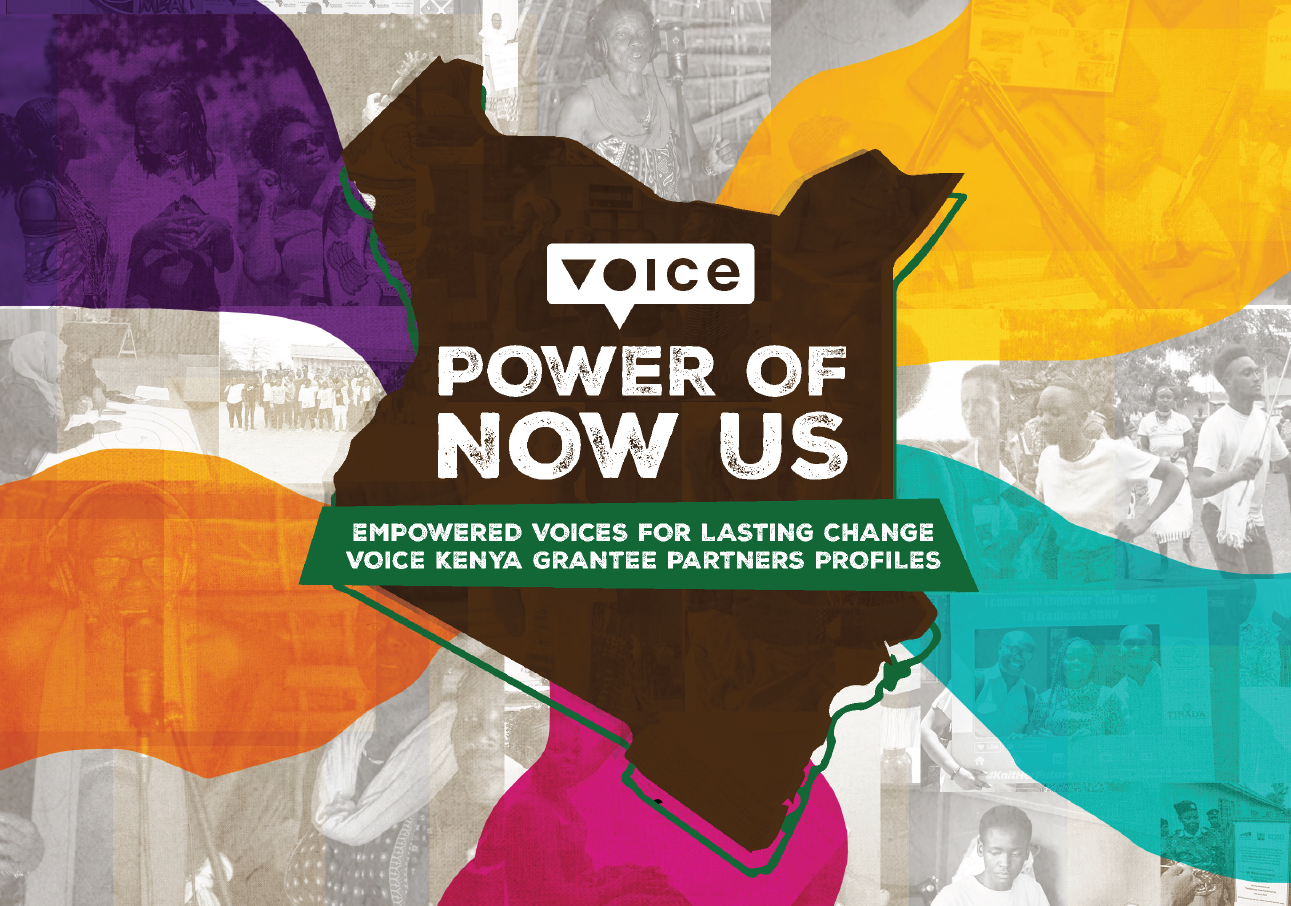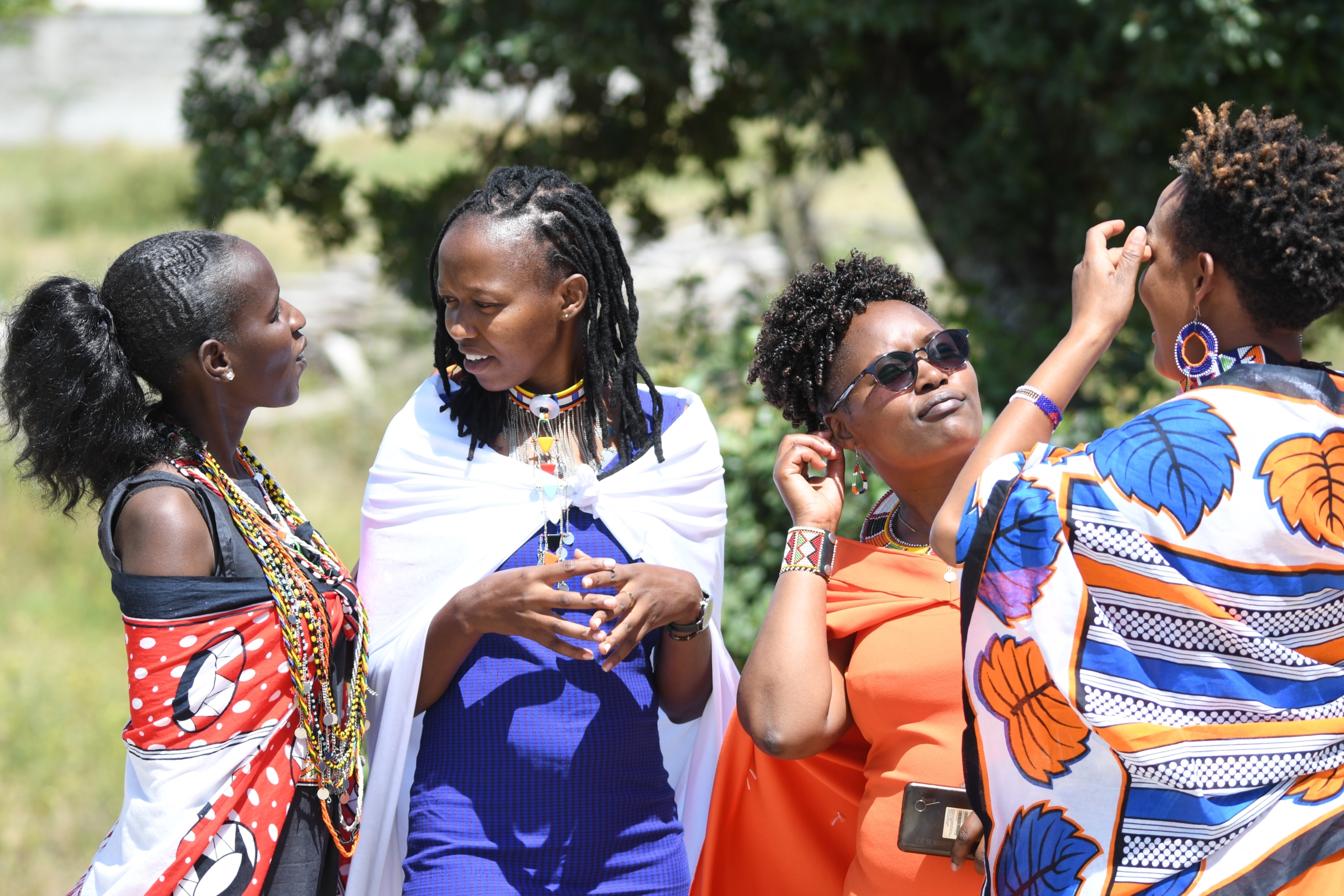Hosting a hybrid event? Part 1
Part 1: Learnings on process facilitation
By Evelien van Egmond
VoiceAt5 Event Organiser (freelance)
Do you remember last year’s VoiceAt5 celebration? It happened on the 7th of April in 2021. Exactly 5 years after Voice was born. A good time to celebrate the richness of the people who make up the Voice family and to celebrate their work. Together we hosted offline country celebrations in Mali, Niger, Nigeria, Uganda and Laos, online country celebrations in Tanzania, Kenya, Cambodia, Indonesia and The Philippines and a 3 hour global programme in which everyone connected online. VoiceAt5 was a journey in itself! To share one of the comments we received after: It was very fun. I particularly liked how creative and fun the introduction segment was where participants from each country were called and greeted everyone. The celebratory noise made one feel that one is in an actual physical party.
This blog is the 1st of 2 in which I share the most important lessons I have learned as event organiser of VoiceAt5 with regard to process facilitation. I focus mainly on the 3 hour online programme. In the second blog, I share lessons on all the technical aspects of the event , also focusing on the 3-hour online programme. Hopefully these lessons will be useful to you when organising a hybrid (online + offline) event.
Lesson 1: Start at the right time. The ever open door…
Organising a participatory, inclusive and engaging event takes time. It takes time to create a team, set the intention, design the setup, the programme, to invite guest speakers, performers, interpreters, MCs, to brief them, to pre-record and edit videos and to communicate about your special event. If the preparation period starts on time, the organising team feels more at ease.
When to start with the preparations of an event is an interesting question. The most important thing is that we need to have a collective feeling about the event. When we connect to our minds ánd hearts and start feeling excited, we inspire each other and might experience that things fall into place. We connect to something bigger than ourselves.
Lesson 2: Create a team. The power is in the team work!
Organising an event might be just one thing of the many things that you are working on and you simply have 2 hands. Start with creating a clear overview at forehand with the roles that you envision. Identify what skills you need. Technical support (see lesson 4 in blog 2 )? Event organising support? Support on communications? Can you find these skills internally or externally? Maybe some partner organisations can play a role? In case you hire external capacities, start with the procurement process right away!
Once you know who your team members are, take time to know each other(‘s skills) and to build relationships. By doing that, you create a unique social fabric on which you can rely, especially during the event when stress levels go up!
Lesson 3: Rehearse the entire event one week in advance. Really.
Next to doing separate rehearsals with guest speakers, MCs, interpreters, etc. also rehearse the entire event. Once you know the date of the event, immediately schedule the rehearsal 7 days in advance to make sure it is in everyone’s agenda. As new people are joining the programme, invite them to the rehearsal right away.
Rehearsing the entire event is the moment when actors are getting acquainted with the overall technical and organisational side of the event and when you still have time to smoothen transition moments (moving from one part of the programme to another), to fix technical glitches and fine-tune briefings (read additionally lesson 6 in blog 2 ).
When you are hosting a hybrid event (online + offline spaces), make sure that the internet connection, video and audio in the physical rooms are tested. If something doesn’t work, there is still time to hire/ buy new equipment and arrange technical support.
A roadmap is a very helpful document to create at the very start of the preparation period. It is an overview of all the steps that need to be taken in order to realise the event. The rehearsals are one of the last steps in your roadmap. Rehearsing also creates such excitement among everyone involved!
Lesson 4: Design an energising programme, especially online
Next to the content that needs to be shared, think about the energy or feelings that you would like to spark among the audience. How to make it engaging? These elements work well:
- Rightsholders centred! Because they are the focal point of our work. Start involving them already in the design phase of the programme. There is nothing more powerful than people sharing their own story, instead of someone speaking on behalf of someone.
- Personal stories instead of speeches. The more personal the story is, the easier it is for people to identify with the story.This document helps to brief people and elaborates on how to tell a story that touches upon our minds, hearts and feet.
- Move away from protocols and challenge the status quo. The engagement of high officials (like ambassadors) is important, but the question is how and where they can best enter the programme. Maybe at the end? Maybe they can be interviewed? Make sure you give them a clear briefing.
- Include arts and culture: a blessing, music, poetry or theatre, associated with the intentions of the event. Performances resonate with other senses than just the brain, but also with the heart, the body and our souls. Start on time, because these performances need to be pre-recorded.
- Find a nice balance between showing (pre-recorded) videos and human interactions. It might feel safe to go for videos, but keep in mind that people like to experience human-to-human interactions. A talk might not be perfect when it’s live, but at least it has the energy of that very moment, including the excitement and other spontaneous feelings and thoughts of the guest speaker.
- Include moments for participants to express themselves and ask them to share their reflections in breakouts and/ or in plenary moments. Not only for yourself to get a sense of what is alive among the participants, but also for the participants to feel heard.
- Engage someone to host the chat. The chat function is a great space for people to share and connect. Write standard messages even before the actual event takes place, so that the person in charge of the chat – in addition to spontaneous comments – can copy-paste the pre-written messages.
Lesson 5: The beauty of communication!
We tend to underestimate the importance of communication. However, we are putting a lot of time into organising a great event, so let’s communicate about it! Go for a lovely event page. We didn’t have one for VoiceAt5…. This page could have all the information participants need: the programme, bios of all guest speakers, teasers of performances, the virtual floor plan, in short: everything to get in the mood!
Lesson 6: Save time by using materials that are already there
Make use of the work that’s already been done by others. It helped me a lot to write ToRs that have been created for former events. And please do use the sh*t load of ToRs that I wrote while organising VoiceAt5! Just get in touch with one of your contacts at Voice! It saves you a lot of work!
That’s it for now. This is the link to the 2nd blog on technical facilitation. Enjoy reading!
And would you like to refresh your memory and to make your heart beat faster as you travel back to the celebration of VoiceAt5? Then take a look at these videos!
https://www.youtube.com/watch?v=VuXASanBhHo → Mr Dansey’s, Abuja, Nigeria
https://www.youtube.com/watch?v=T1DYRfWwU98&t=16s → Voice celebration in Laos
https://www.youtube.com/watch?v=lPNpoL-dEr8&ab_channel=VoiceGlobal → 5 years Voice: compilation
https://www.youtube.com/watch?v=tsZaPmE-GBA&t=14s → VoiceAt5 aftermath








